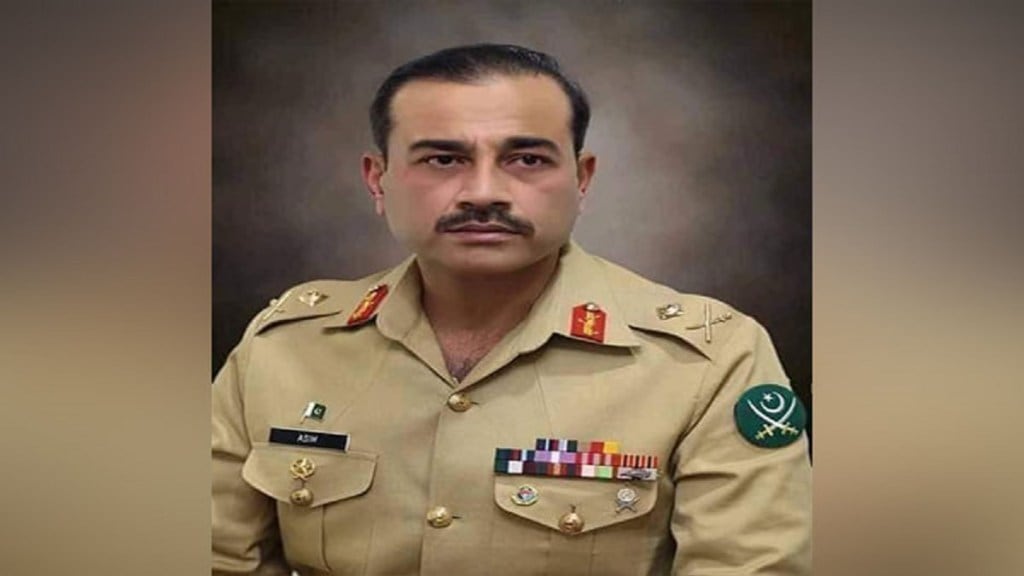Pakistan put down a coup on May 9, said Defence Minister Khawaja Asif on Thursday. He admitted that the turmoil and tussles that took place after the former prime minister Imran Khan’s arrest was a “watershed moment” for Pakistan.
“Events of May 9, I think, have warned us about many things. That was not about ever,” he said.
“I would define it as a mutiny, which failed. I would say it was against the state,” Asif said.
Building upon several reports, in an interview, a senior Pakistani journalist Syed Imran Shafqat also revealed that former Pakistan PM Imran Khan has been told that General Asim Munir could be court-martialled in a rebellion within the Army in two weeks. “There are 176 soldiers serving in major and minor positions who are facing a court martial inquiry because of Imran Khan,” Shafqat reportedly said.
Khan had already taken a crusade against the most powerful institution of Pakistan’s real establishment, the ISI. Khan also publicly called Major General Faisal Naseer, a top ISI officer, as the one who had tried to have him (Khan) assassinated, and had organised the assassination of renowned Pakistani journalist Arshad Sharif too.
Definitely, there are multiple reports which hint at growing internal strife with the top leadership—some of them are who recently retired or quit,” said a former diplomat who was posted in Pakistan.
In fact, as reports suggest, Pakistan’s former head of ISI, retired Lieutenant General Faiz Hamid is accused of engaging in corruption. The serious allegation comes from the country’s interior minister Rana Sanaullah.
“Such incident has instigated much internal strife,” said the former diplomat.
Looming military coup
The ever-dominant military soon began a crackdown after Imran Khan’s detention, Pakistan Tehrik-e-Insaf (PTI) workers breached its General Headquarters (GHQ) perimeter, set the Corps Commander Lahore’s residence and the historic Radio Pakistan Peshawar on fire, and rampaged military symbols and installations across the country.
On May 9, after Imran Khan’s detention, military leaders from the army admitted that there were signs of a coup, albeit a failed one.
Reports also indicate the difference between the Pakistan army chief General Munir and senior commanders over the breach of protestors across the army’s installations.
One of the top commanders Lt Gen Ghanni who was unceremoniously sacked by General Munir has also raised voices. Reports suggest he is backed by many others across the ranks and file of the military establishment.
However, reports also indicate that military leaders under General Munir blamed Imran Khan to instigate leadership change within the army and upstage the Pakistan Democratic Movement (PDM) government.
While the alleged coup was marked as failed, Imran Khan certainly knows the risk that the General poses. At the same time, it is equally a tough situation for General Munir who also understands Khan’s popularity within the high ranks of military leadership – a major challenge for the unquestionable military chief of Pakistan. This is also backed by an opinion poll published by Gallup earlier this year found that Khan’s approval rating jumped to 61% in February from 36% in January last year.
Interestingly, the PDM, which is a coalition of 11 political parties against the Imran Khan administration also blamed Khan for instigating a coup.
Despite that fact the movement has brought two major but rival political parties of Pakistan together– The Pakistan People’s Party (PPP) and the Pakistan Muslim League (PML) — which also aim to undermine the military authority called our Khan for the instability.
While it is worth noting that Gen Asim Munir, a former Director General of ISI who was removed at Imran Khan’s behest, is seen as relatively a feeble military chief, trying to hold the nine Corps Commanders of the Pakistan army. This led to at least three top commanders speaking against the handling of the violent protestors and breakouts across the army’s bases.
